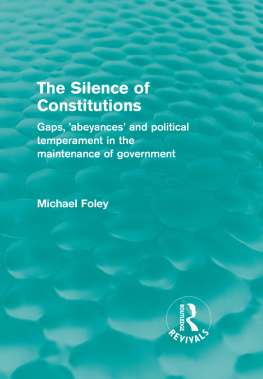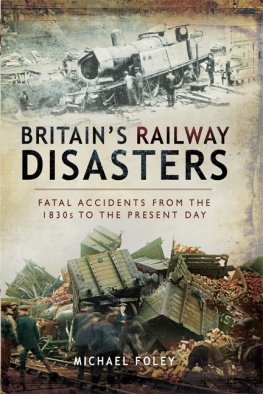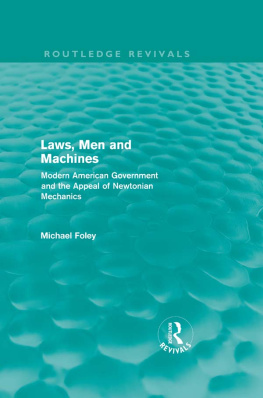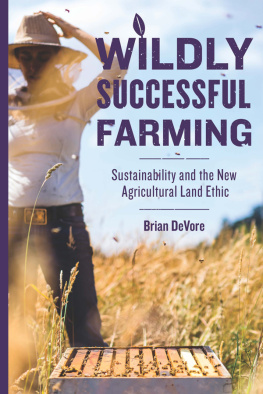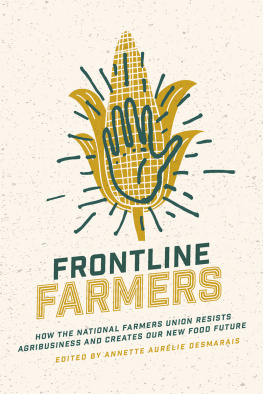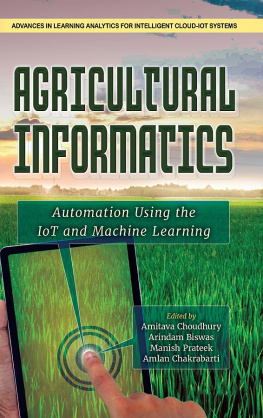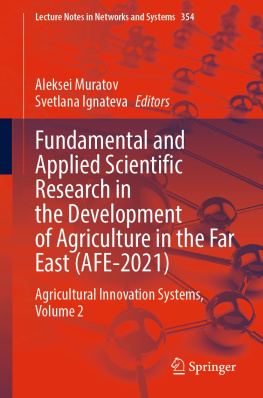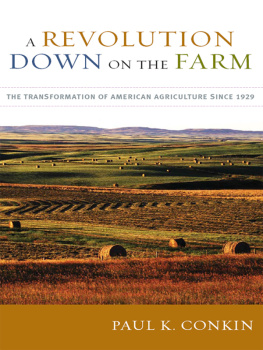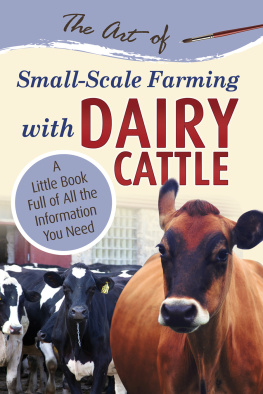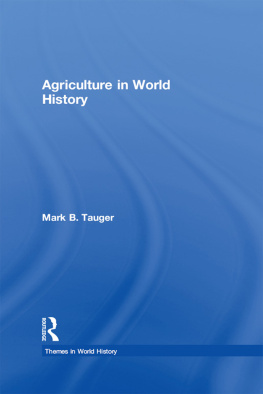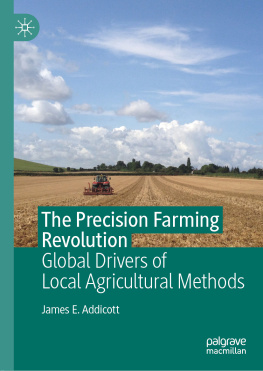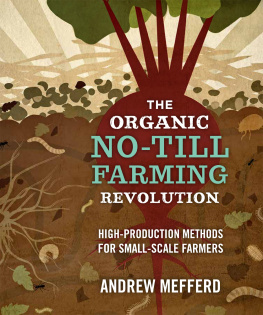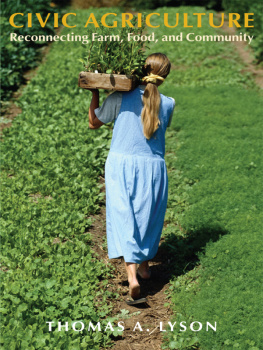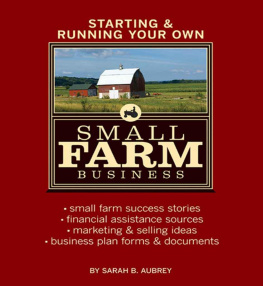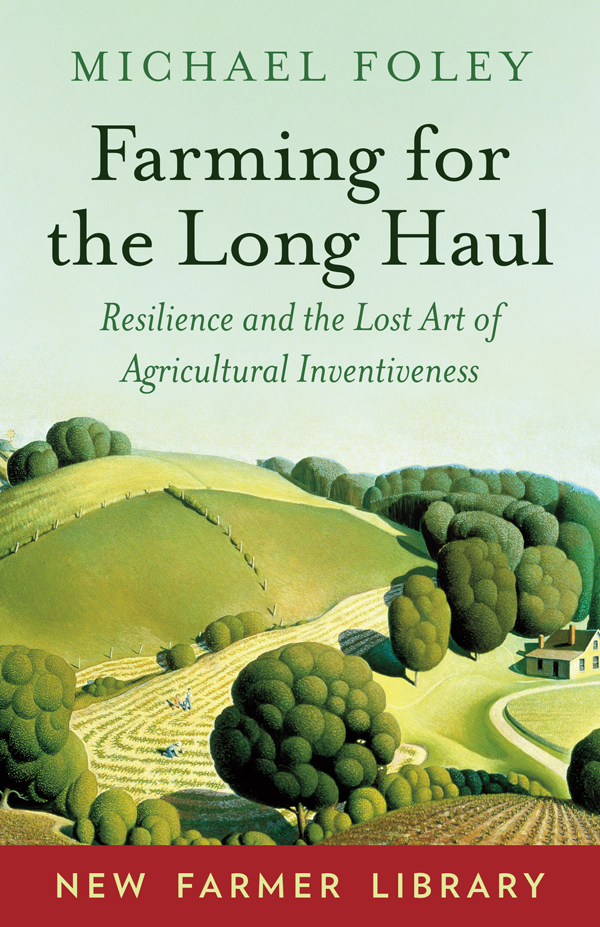Contents
Guide
Pagebreaks of the print version
PRAISE FOR
Farming for the Long Haul
Michael Foleys passion and his lifetime of research and lived experience comes through in this primer of agricultural history and personal philosophy that is sure to prompt an important dialogue about the future of agriculture and the political economy. Agriculture is a shared expression of who we are, and I believe we need more people thinking deeply, questioning, and sharing their insights. This book provides many tools and references to ask informed questions and encourage a richer discussion about progress.
DORN COX, farmer; founding member of Farm Hack
Globally, humanity urgently needs to transform the way we make our livelihoods if were to thrive into the future. In Farming for the Long Haul , Michael Foley shows that food and farming are at the heart of this, and he gives us some fine tools for rethinking them. Theres a heft to his book that speaks of hard workboth in the study and on the landbut theres also a lightness to the writing that makes it a pleasure to read. The world badly needs more farmer-scholars like Foley.
CHRIS SMAJE, Small Farm Future, Somerset, UK
This book is a modern peasants manifesto! Small farmers today have a stark choice, Michael Foley tells us. We can either buy into the current agricultural and food system and fail utterly, or we can try to change the system entirely. This book outlines the history of agriculture, shows where weve gone wrong, and recounts the practices and values of the most resilient long-haul farmers throughout the world. Then Foley sets up a visionary solution aimed at helping small farmers both survive the dwindling stages of our current system and position themselves for the dramatic changes the future holds. Farming for the Long Haul extends, expands, and updates Wendell Berrys The Unsettling of America , then puts forth a vision of a land of resilient small farms ready to survive the present and thrive into the future.
CAROL DEPPE, author of The Resilient Gardener
Farming for the Long Haul
Resilience and the Lost Art of Agricultural Inventiveness
MICHAEL FOLEY
Chelsea Green Publishing
White River Junction, Vermont
London, UK
Copyright 2019 by Michael Foley.
All rights reserved.
No part of this book may be transmitted or reproduced in any form by any means without permission in writing from the publisher.
Project Manager: Sarah Kovach
Project Editor: Ben Watson
Acquisitions Editor: Michael Metivier
Copy Editor: Laura Jorstad
Proofreader: Caitlin OBrien
Indexer: Shana Milkie
Designer: Abrah Griggs
Printed in Canada.
First printing January, 2019.
10 9 8 7 6 5 4 3 2 1 19 20 21 22 23
Our Commitment to Green Publishing
Chelsea Green sees publishing as a tool for cultural change and ecological stewardship. We strive to align our book manufacturing practices with our editorial mission and to reduce the impact of our business enterprise in the environment. We print our books and catalogs on chlorine-free recycled paper, using vegetable-based inks whenever possible. This book may cost slightly more because it was printed on paper that contains recycled fiber, and we hope youll agree that its worth it. Farming for the Long Haul was printed on paper supplied by Marquis that contains 100% postconsumer recycled fiber.
Library of Congress Cataloging-in-Publication Data
Names: Foley, Michael W., 1945- author.
Title: Farming for the long haul : resilience and the lost art of agricultural inventiveness / Michael Foley.
Description: White River Junction, Vermont : Chelsea Green Publishing, [2019] | Includes bibliographical references and index.
Identifiers: LCCN 2018037034| ISBN 9781603588003 (paperback) | ISBN 9781603588010 (ebook)
Subjects: LCSH: Farms, Small--United States. | Farmers--United States. | Agriculture--United States.
Classification: LCC HD1476.U6 F65 2019 | DDC 338.10973--dc23
LC record available at https://lccn.loc.gov/2018037034
Chelsea Green Publishing
85 North Main Street, Suite 120
White River Junction, VT 05001
(802) 295-6300
www.chelseagreen.com
CONTENTS
This is a book about farming today with an eye to our uncertain future. It is about building a viable small farm economy that can withstand the economic, political, and climatic shock waves that the twenty-first century portends. Uncertainty and periodic disruptions have always been part of the background as humans worked to bring the fruits of nature to the table. In the twentieth century the economics of a growing urban, industrial society wrecked the dream of a smallholder society on which Thomas Jefferson bet his hopes for a democratic America. Economic hardship and the years of drought that ended in the Dust Bowl wrecked the dreams of millions who thought to live off the land, sustaining their own livelihoods while supplying the burgeoning cities of an industrializing giant. And they continue to take their toll on hard-nosed agribusiness people and idealistic young farmers alike as we make our shaky way into the twenty-first century. The shocks of the coming decades arguably will be greaterunprecedented in the short history of industrial agriculture but familiar enough in the history of descent of other civilizations.
The next chapter recalls some of our recent history, but we will not dwell on a critique of the industrial model of agriculture as it developed over the last hundred years in this country. That has been done ably by many before me. The road to the present impasse is part of a recent past that should inform our decisions about how we farm and what we can expect from farming today. In fact, too much of the farming advice that new farmers are receiving today ignores that sorry history and repeats its mistaken assumptions. It ignores as well the real perils farming faces in the wake of the ruin that twentieth-century agriculture, and the fossil fuel economy that supported it, has wrought. And too often missing in our thinking about the future of farming is an awareness of the long history of resilience and adaptation that other farming cultures brought to bear as they faced other disasters, persisted, and found new and better ways to secure a livelihood and live sustainably upon the land.
This book looks cautiously forward toward the challenging prospects of the next several decades, trying to suggest ways to prepare a farming future that can survive the transition to a future very different from the present. And it will do so drawing on a still-deeper past, recalling examples from the vast history of agriculture and the endless array of agricultural adaptations that farmers have devised, gleaning lessons from more resilient agricultures, ones that withstood not just the vagaries of the modern capitalist market, but environmental and social shocks of the past that rival what lies ahead.
Successful farming societiesand there have been many of them throughout the history of agriculturehave never been driven by the profit motive, though profit has played a part in some societies, at least where farmers were free and markets significant. Instead, they have been governed by principles of resilienceby the effort, to put it simply, to survive and to do so well under uncertain conditions. Those principles include: a dedication to their own subsistence, above all; sophisticated approaches to management of the natural resources on which farming depends; and dependence upon a vibrant local community as a first line of defense against calamity.



